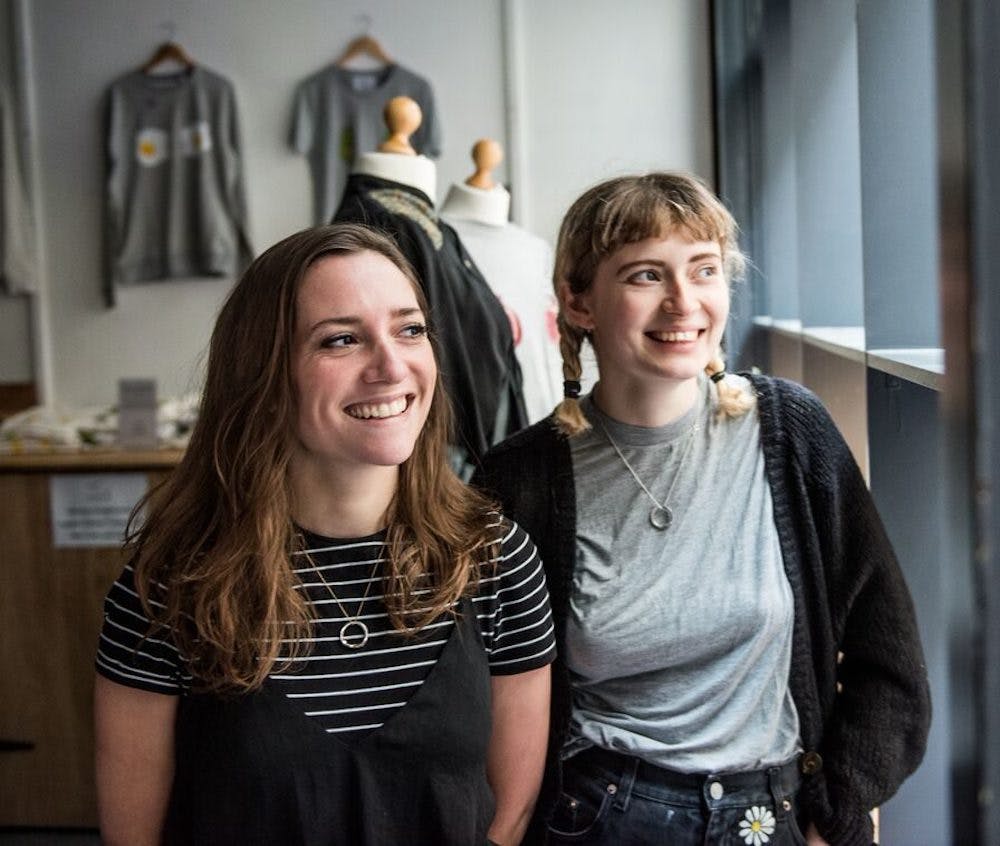Glamorous, attractive and highly addictive, the fashion industry is a place where dreams are made. But wipe away the sparkle, and what lies beneath is a dark and murky place that’s lacking in morals, indifferent to poverty, and impervious to criticism. But change is in the air
Independent labels are fighting back against fast fashion by creating cool clothes that benefit the consumer and society. Happiful meets five British designers who are taking ethical fashion to a whole new level
The Fashionable Farmer
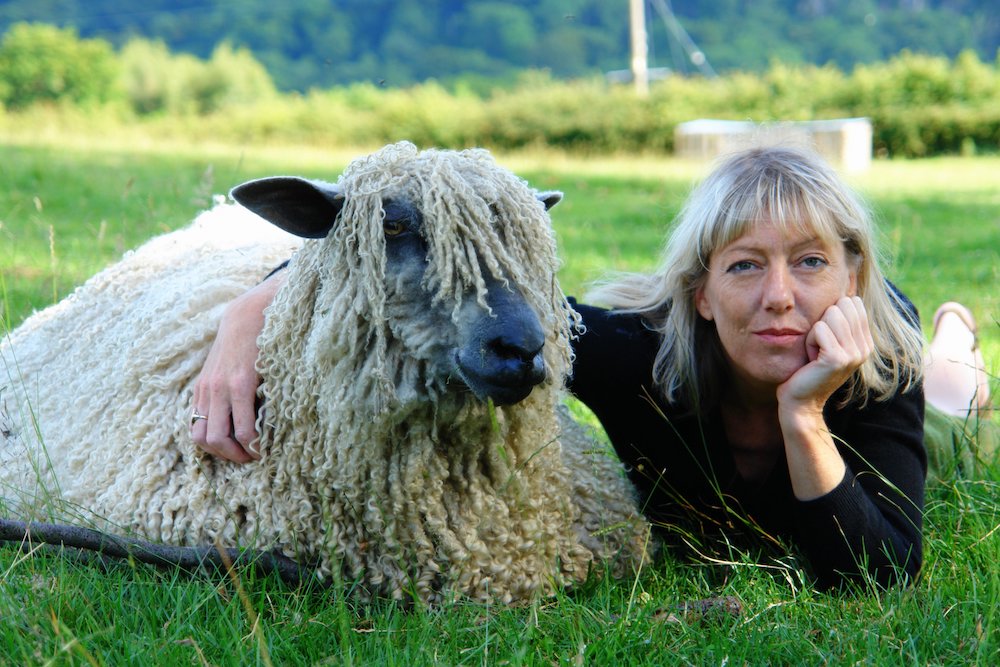
Isobel Davies
Founder: Isobel Davies
Label: Izzy Lane
Kind: Knitted Apparel
Hi Isobel! Tell us about yourself.
I’m Isobel, an ex-singer/songwriter, an ethical entrepreneur, and an animal rights campaigner. I started Farmaround – a vegetarian company and the first ever organic box scheme – which I still own today. Izzy Lane is my fashion label and has animal welfare at its core. I’ve rescued more than 600 sheep from slaughter to provide the wool for my label. Farming is a ruthless business.
That can't have been easy?
It’s all been incredibly hard, thankfully. There’s nothing quite like entering an industry you know nothing about and having to learn your way through it. I think it makes for finding your own way of doing things, rather than perhaps the right way, like everyone else.
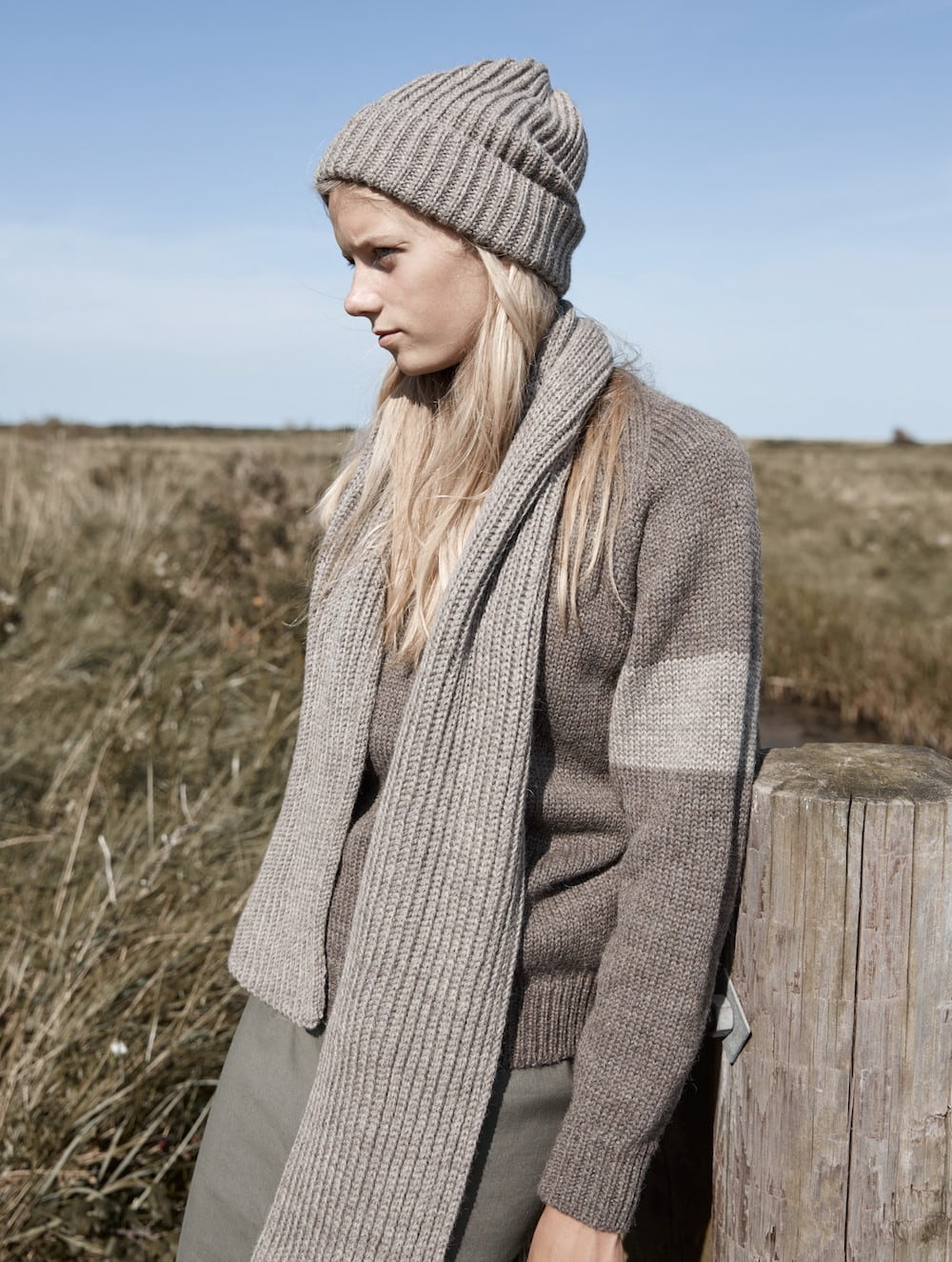
Izzy Lane 2017 Collection
How did you run a startup fashion business while also running your own flock?
Thankfully, I found a shepherd, Ernest, in the early days. I do like to spend time with the sheep – they’re a great tonic to all life’s stresses. They are beautiful, sensitive creatures and don’t deserve what humans inflict on them.
You’ve won awards and done many catwalk shows. What’s next?
We had a new collection in early September, the first for two years. Most designers will buy their fabrics from fabric fairs but, having to do everything from the very beginning, from the nurturing of the sheep to the finished pieces, means we only bring out a collection every few years.
How do you use your brand to campaign for animal rights?
Every time I talk about Izzy Lane, and the story of my brand, it enables me to tell people that there is no traceability of animal fibre in the fashion industry. There is no way of knowing if the wool you’re wearing has come from sheep that have been live- exported thousands of miles for religious slaughter, or if your angora socks are made with the hair ripped out of a rabbit as it screams in a factory farm.
We have to be vocal in expressing what we want. Nothing will change unless we change it
Your label has two goals: help save the British textile industry, and give animals a voice. Have you made a difference?
I guess that’s for others to judge, but Izzy Lane has certainly played its part on both counts and helped precipitate change and raise awareness. When I started this, I found that British textile mills were closing by the day. I found the very last remaining worsted spinner in Calderdale – previously there had been 52 spinners. The likes of Burberry and M&S were all moving production to Asia and our industry was falling to pieces. I was determined to highlight this and I did. Now everyone is clamouring to come back to the UK to manufacture – sadly it’s too late.
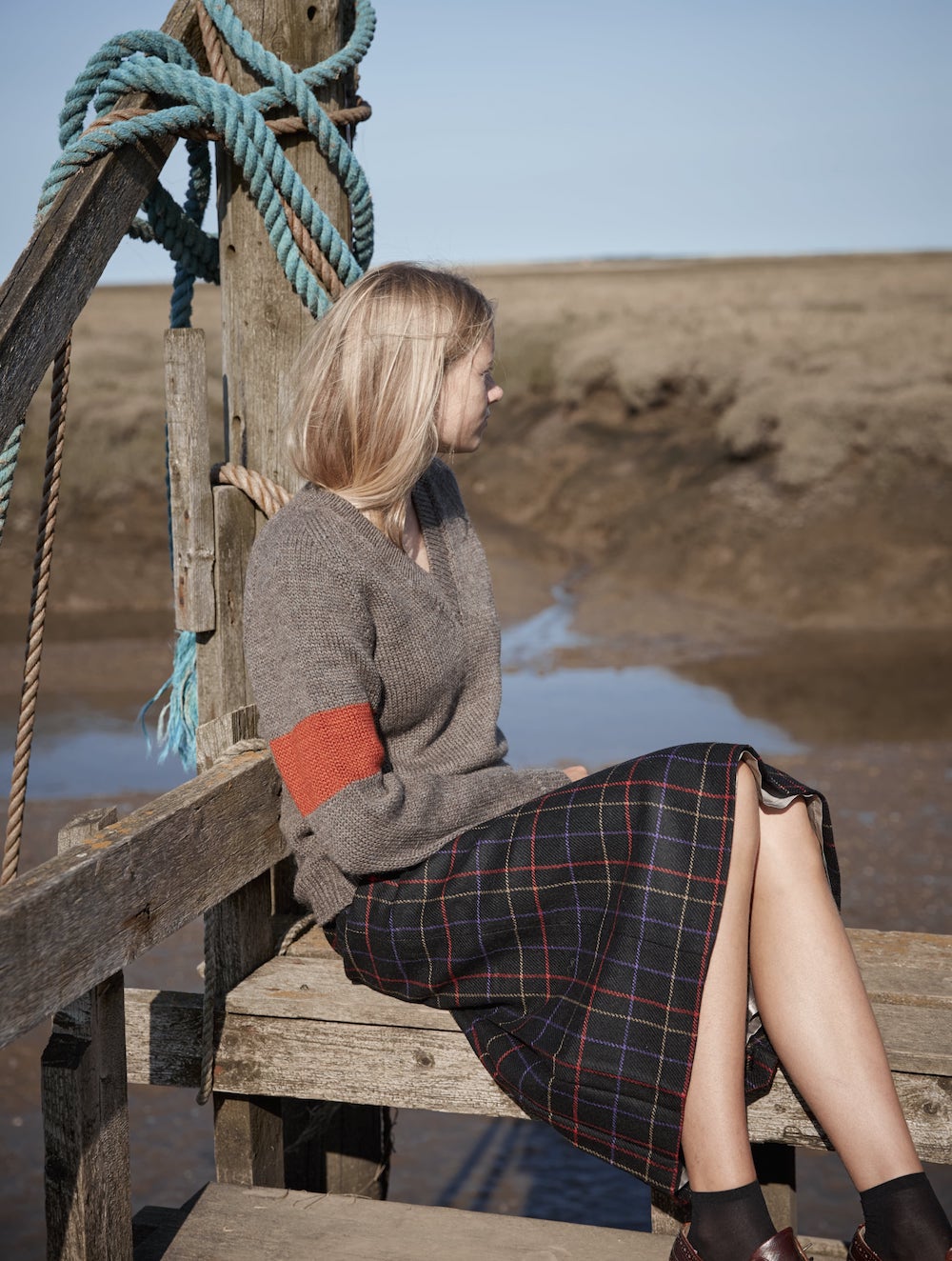
Izzy Lane 2017 Collection
How do you heighten awareness of animal welfare in fashion with the general public?
Since leaving London to live in Yorkshire, I’m confronted with the brutality of farming on a daily basis. Like any animal, the bonds between mother and child are strong – they’re inseparable. But the clock is ticking. Born in April, by July they are rounded up. Lambs are sent in preparation for slaughter, ewes the other way. Their cries fill the valleys and the lambs are never joyful again. This is the reality of the sheep system, which is where wool comes from.
As consumers, how can we be more conscious with our fashion choices?
We all have the power to change. The world is in our hands, in our purses. If we don’t buy it, they don’t make it. Fashion is a big business and shareholders want return on investment. That’s their primary concern, not the ethics. As consumers, we have to be vocal in expressing what we want. Nothing will change unless we change it. “Buy less and buy better” is a sensible mantra.
Find out more at izzylane.bigcartel.com
The Feminist Fashionistas
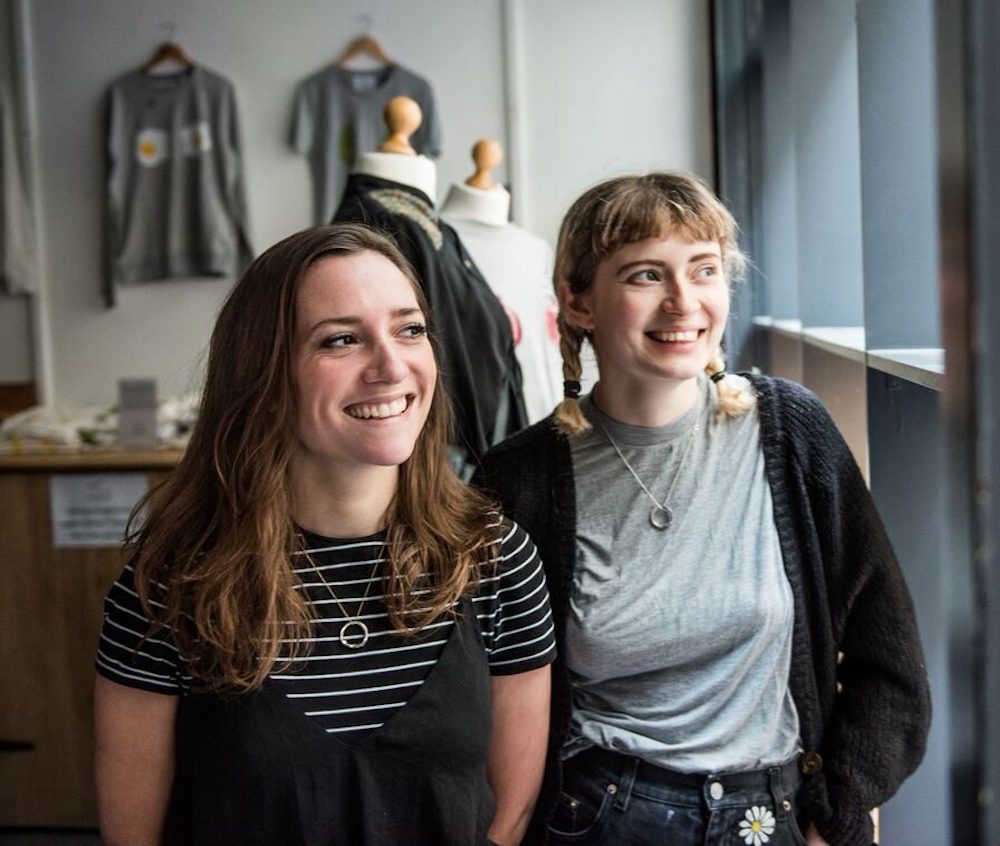
Birdsong London Founders
Co-founder: Sophie Slater
Label: Birdsong London
Kind: Women's Apparel
Hi Sophie! What you do is incredibly inspiring. How did it all begin?
Me and my business partner, Sarah Beckett, met in 2014 while we were both working for charities. I had a background working as a model, and as a shop assistant at the ethical (but hugely problematic) clothing chain, American Apparel. I was really interested in ethical fashion production and the industry, but couldn’t stand objectifying advertising.
Most of fashion is made in sweatshops, and 80% of people working in them are women or girls aged 18–24. We want to challenge that
Sarah was working at an elderly people’s day centre, and the knitting circle there kept churning out scarves. They had knitted stuff coming out of their ears because it was so calming! It helps with arthritis and makes the women feel purposeful.
For us, feminism was becoming more mainstream and consumers were wising-up to sexist advertising. Street-casting, working with feminist photographers, and including women left out by budget cuts felt like a good way to start a fashion brand that we really believed in. All the pieces of the puzzle were there, so we decided to build a fashion brand as outsiders with no experience, but doing each step without exploitation.

Birdsong London
What do you make? And how do you make it?
We make clothes, shoes and accessories – all here in London. They’re manufactured by highly skilled women’s groups. Some work together independently, some are affiliated with larger charities. All our collection pieces are made by migrant, low-income women for living wages, and the hand knits by two groups of older women.
What inspired the name Birdsong?
We were reading Maya Angelou’s I Know Why the Caged Bird Sings, so when a friend suggested we call the project Birdsong, it stuck.
Your company has a really fantastic message: ‘No Sweatshops, No Photoshop’.
Sarah came up with it as a means of articulating what we do. Women’s bodies are great the way they are, so we don’t edit them. We use street-cast models who are all friends of ours or Birdsong, and often activists. Most of fashion is made in sweatshops, and 80% of people working in sweatshops are women or girls aged 18–24. For a company with feminist principles at its core, our slogan communicates why both these issues are important to us, and what we’re challenging.
You work with women’s organisations Knit & Natter, Mohila Creations, and Heba. Why them?
Sarah was working with the Bradbury knitters when we founded Birdsong. We were put in touch with the other organisations, and sort of built our business around there. The women are all super-talented. However, they face a lot of barriers to selling, such as language, lack of digital skills, and confidence. Having access to an organisation gives these women support – many of whom will have been widowed, experienced domestic or sexual violence, or other gendered challenges.
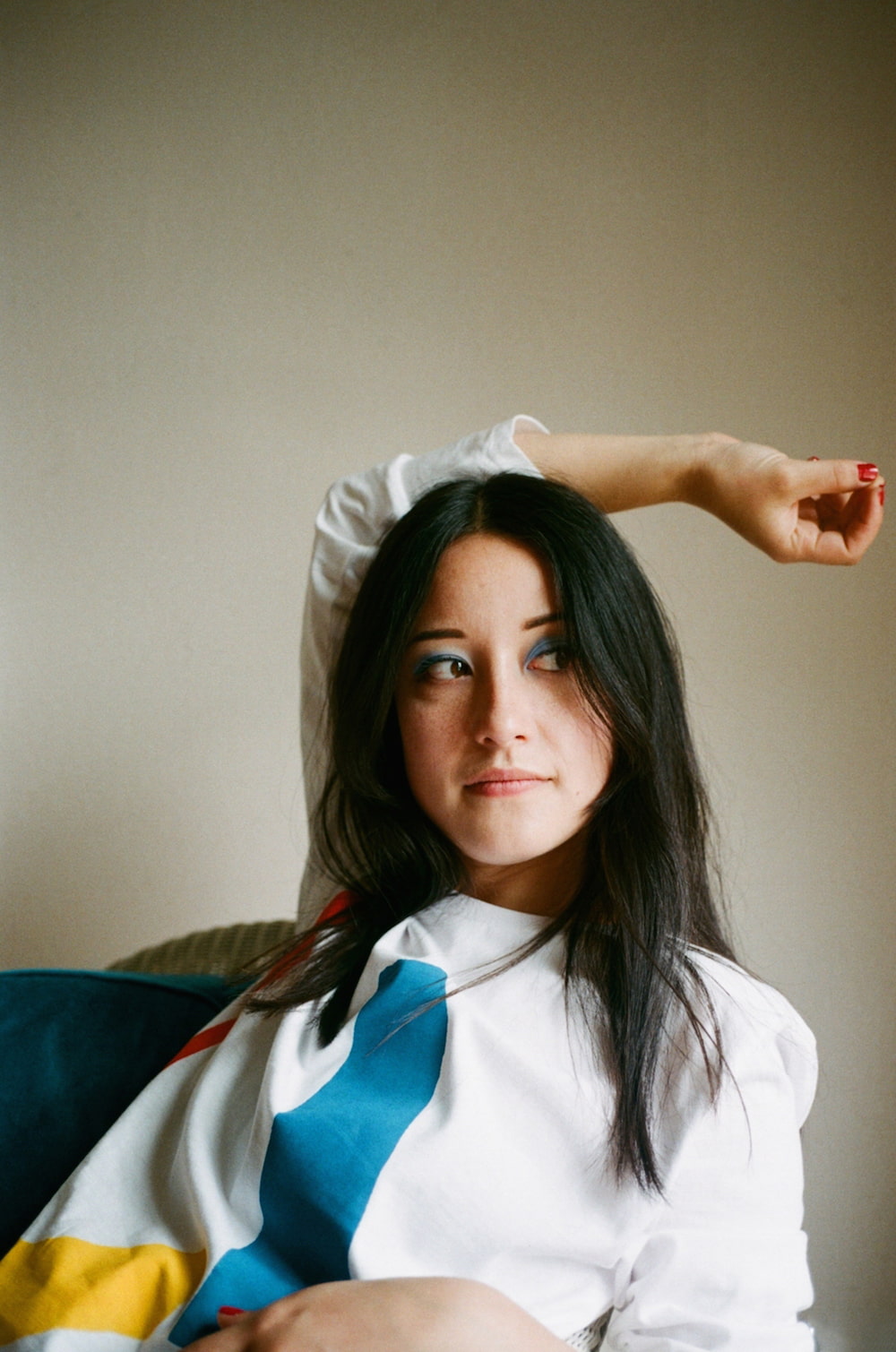
Birdsong London
Is fashion still focused on photoshopping and
editing models?
It seems like the tide is turning. I think when technology developed it was a means of creating a “fantasy” – if you sell an unrealistic image of a woman, then you can also sell her loads more products to fill the self-esteem gap you’re creating. That was the logic back then, it seems. I think people are now realising you don’t need to make people feel awful about their bodies to sell things. If anything, a product that has a realistic promise and makes you feel great will sell even better.
Are the younger generation driving the fashion
industry into a more sustainable future?
Definitely. Ethical fashion is growing at a faster rate than “regular” fashion and young people are more and more concerned with how things are made. But I don’t think it’s just our generation – there are plenty of people who still remember clothes being made in Britain fairly, and to last, and who appreciate our designs for that very reason.
How does your future look?
We have our first full own-brand collection launching this month. We also have pop-up shops in Warsaw, London and Berlin; the launch of our second magazine; exciting partnerships in the pipeline; and our first presentation for Spring next year. There’s lots to be getting on with!
Find out more at birdsong.london
The New Girl on the Block
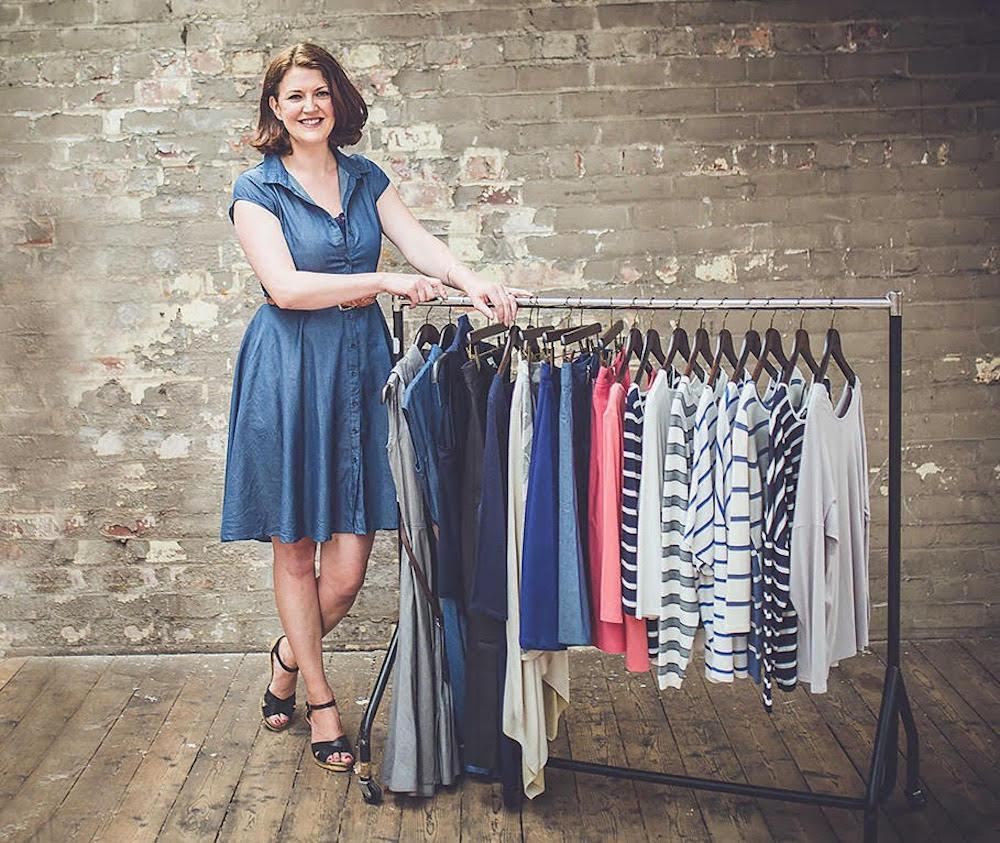
Founder of Two for Joy - Sarah Jerath
Founder: Sarah Jerath
Label: Two for Joy
Kind: Womenswear
Hi Sarah! Can you tell us about your brand.
We aim to produce clothing that transcends the seasons, so when we design a garment, we try to design it with the aim of it becoming a hardworking item for your wardrobe – not something you will wear once and discard.
Previously you were a teacher. What inspired the change into the fashion world?
I taught for 12 years and loved it, but after having two children I felt that it wasn’t working for me anymore. I was getting worn down by the paperwork involved and the constantly changing education system. Luckily, with the unconditional support of my husband, I was able to make a change.
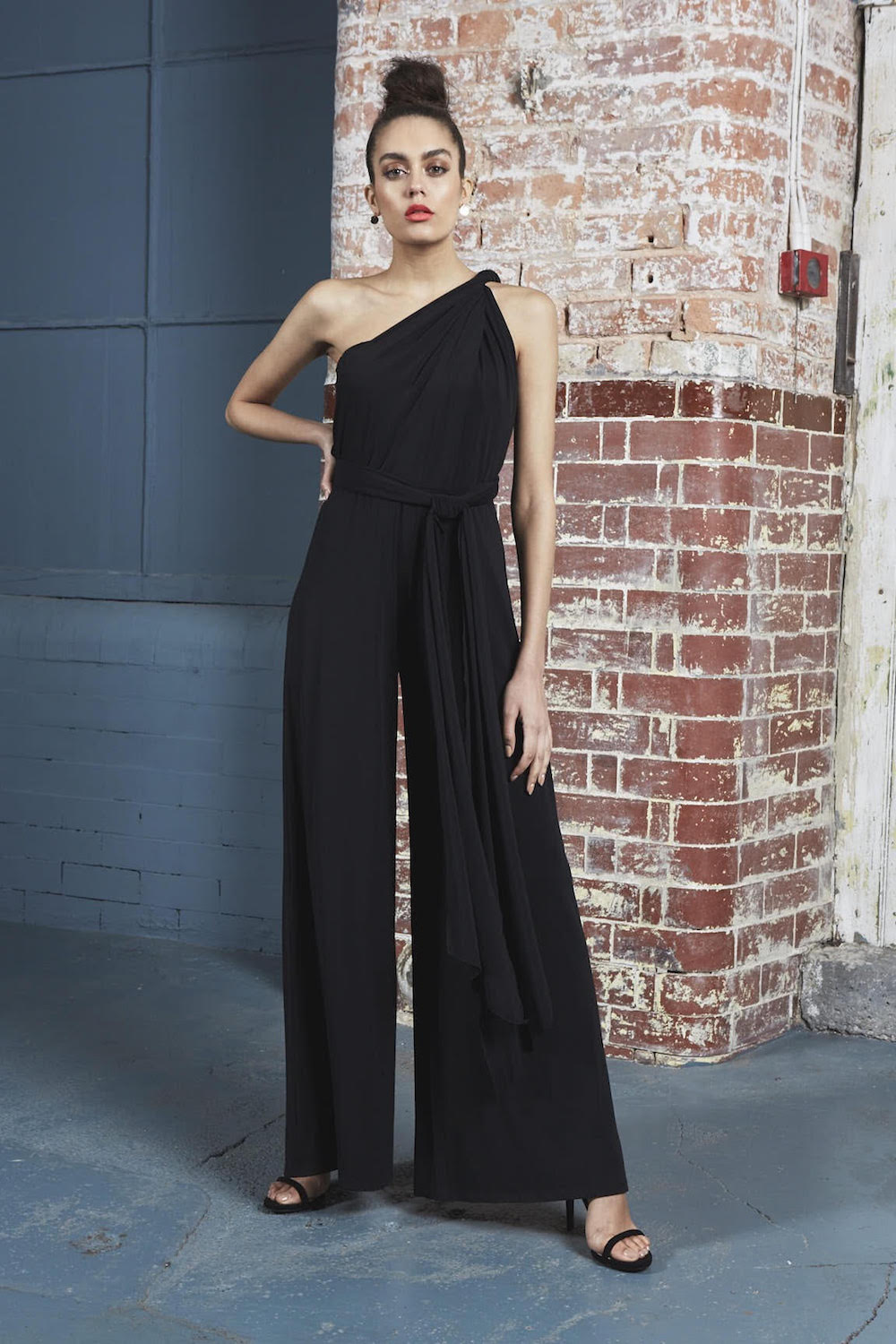
Two for Joy
And why fashion?
The UK high street is amazing, but I felt the options were either fast fashion (which doesn’t appeal to me) or very expensive items I couldn’t justify spending money on. I decided to create a brand of “forever essentials” – well-priced, good quality, staple items for your wardrobe.
Why sustainable fashion?
I want to know if my clothes have been made in a factory where workers are treated fairly. The Rana Plaza disaster [in 2013, a garment factory collapsed in Bangladesh, killing 1,134 people] really made me stop and think about where some brands’ clothes were being made, and the true cost of fast fashion.
Can you tell us about your ‘Forever Giving’ ethos?
I think we can make small changes that can benefit others, and I wanted to run a business that could make a difference to the wider community. From each sale on our website, we make a donation to the Mayamiko charity.
What’s Mayamiko and why did you choose it?
Mayamiko is a UK-based charity that offers training and funding to establish and develop businesses in Malawi and other parts of Africa. They work on a variety of projects, some of which revolve around enabling women to achieve their goals. As a female-led business, I want to support charities working in the clothing sector that actually empower women.
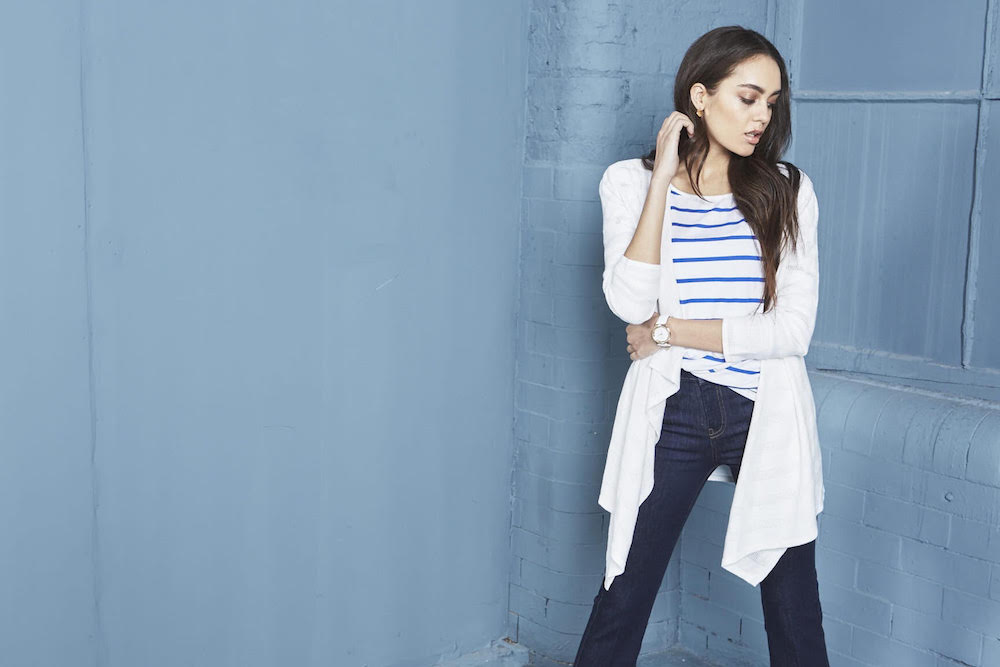
Two for Joy
We’re also working with the Christie cancer treatment centre in Manchester to design T-shirts, where 50% of the sale price will go to them. The Christie is very important to me. Not only are they a bastion of excellence in Manchester, but also because I lost my mum to cancer. My dad and others close to me have also had cancer.
You’re trying to be totally transparent in terms of breaking down the ethical cost of your garments.
We’re not there yet. Our aim is to be totally transparent, but it takes time. I feel we’re only just beginning our journey, and there so many issues I’d like to address to make our company as ethical as possible!
Finally, what are your views on our addiction to fast fashion?
At the moment, I don’t think the fast fashion industry is truly sustainable – for suppliers, for brands, or for the consumer. However, we’ve had really positive responses so far and it seems like people are looking for an alternative to the fast, disposable, no-questions-asked fashion that seems to be everywhere.
Find out more at 2forjoy.co.uk
The Global Dreamers
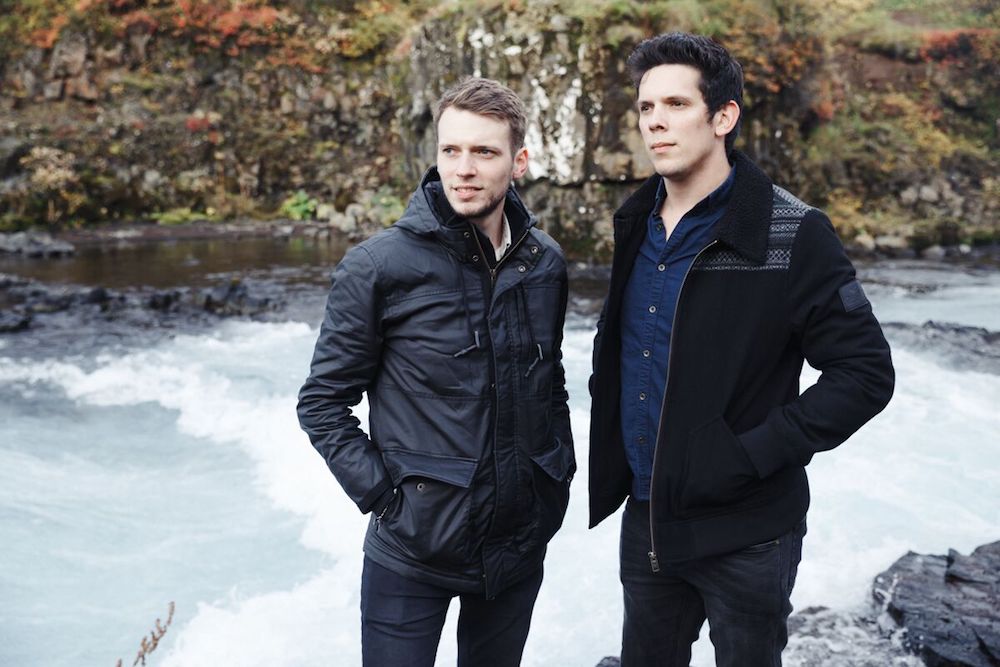
Gandys Founders - Rob and Paul Forkan
Founders: Rob and Paul Forkan
Label: Gandys
Kind: All Apparell
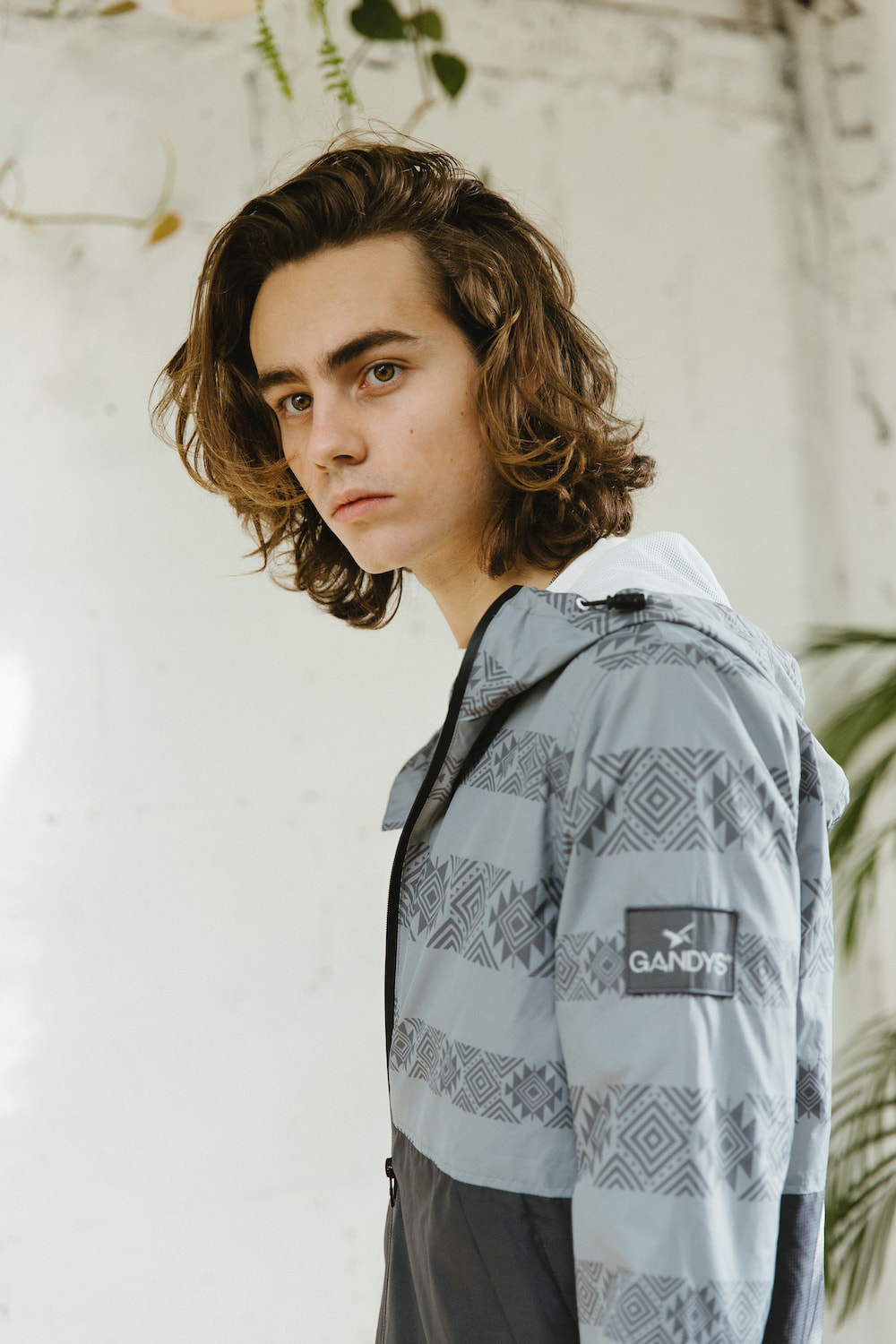
Gandys
Hi Rob and Paul! Can you tell us about your beginnings?
Gandys is a lifestyle brand inspired by travel and fuelled by giving back. [Founders, Rob and Paul, set up Gandys after they tragically lost their parents in the 2004 Tsunami.] We wanted to build a brand which was able to help other orphans who’ve had a hard upbringing.
Have you always loved travelling?
Yes, we grew up travelling through Asia and lived in India for a few years, so it has since lived through us, and we try to get away as much as possible to explore new places.
You turned a life-changing tragedy into a remarkable story.
Can you tell us about your ‘Orphans for Orphans’ initiative?
The initiative was set up to help other orphans in a similar or worse off positions than us. We wanted to create something that meant a lot to us and would help as many people we could. We have helped with numerous projects across Asia; we’ve built our first children’s home in Sri Lanka, and we’re now on our way to build our second in Malawi.
How much do you give back?
We donate 10% of our profits towards our foundation, while also running lots of fundraising events to raise more funds. 100% of our donations go straight into our foundation and fund education, medication and nutrition to enable the children to have the best life they can.
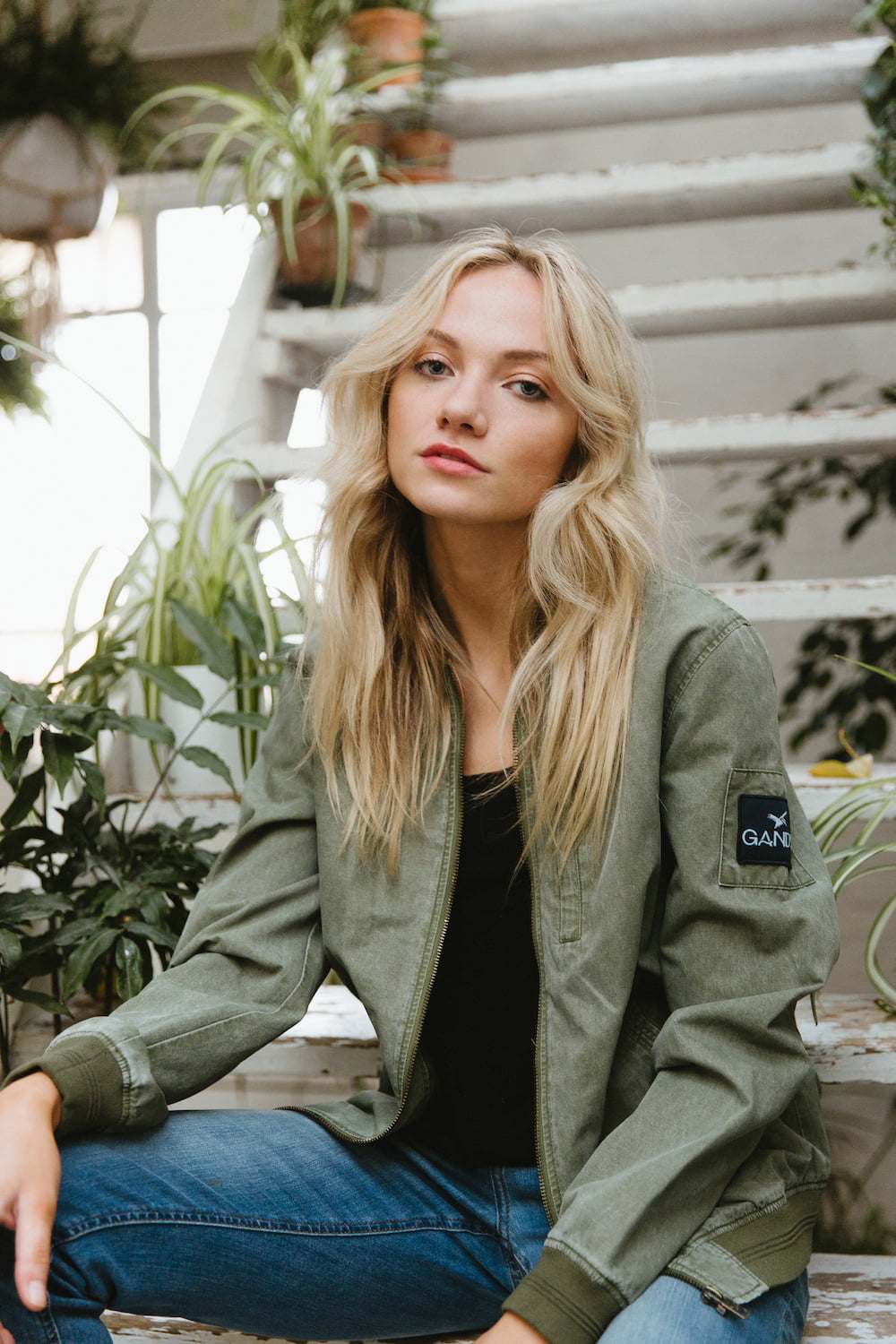
Gandys
Do customers feel a stronger emotional connection to a label where some of the price is going to worthy causes?
There’s definitely an element of customers buying our products due to an emotional attachment. But we do think our products also sell for themselves as we use unique designs, all of which are inspired by our bohemian upbringing. We spend a lot of time making sure the products look great and feel nice, too. We ensure we use so fabrics, so that they feel really nice when the buyer wears them.
Do you think the bigger fashion brands will become more ethical?
Who knows, but we don’t think there are any brands like us – hopefully this will help us in our mission towards building more children’s homes around the world. We’re totally inspired. Whether you’re an up-and- coming brand paving the way for the ethical movement or, like us, a consumer and lover of fashion, there is a way you can make a difference. Be passionate, choose wisely, and buy clothes that have a story to tell.
Find out more at gandyslondon.com
The Rural Storytellers
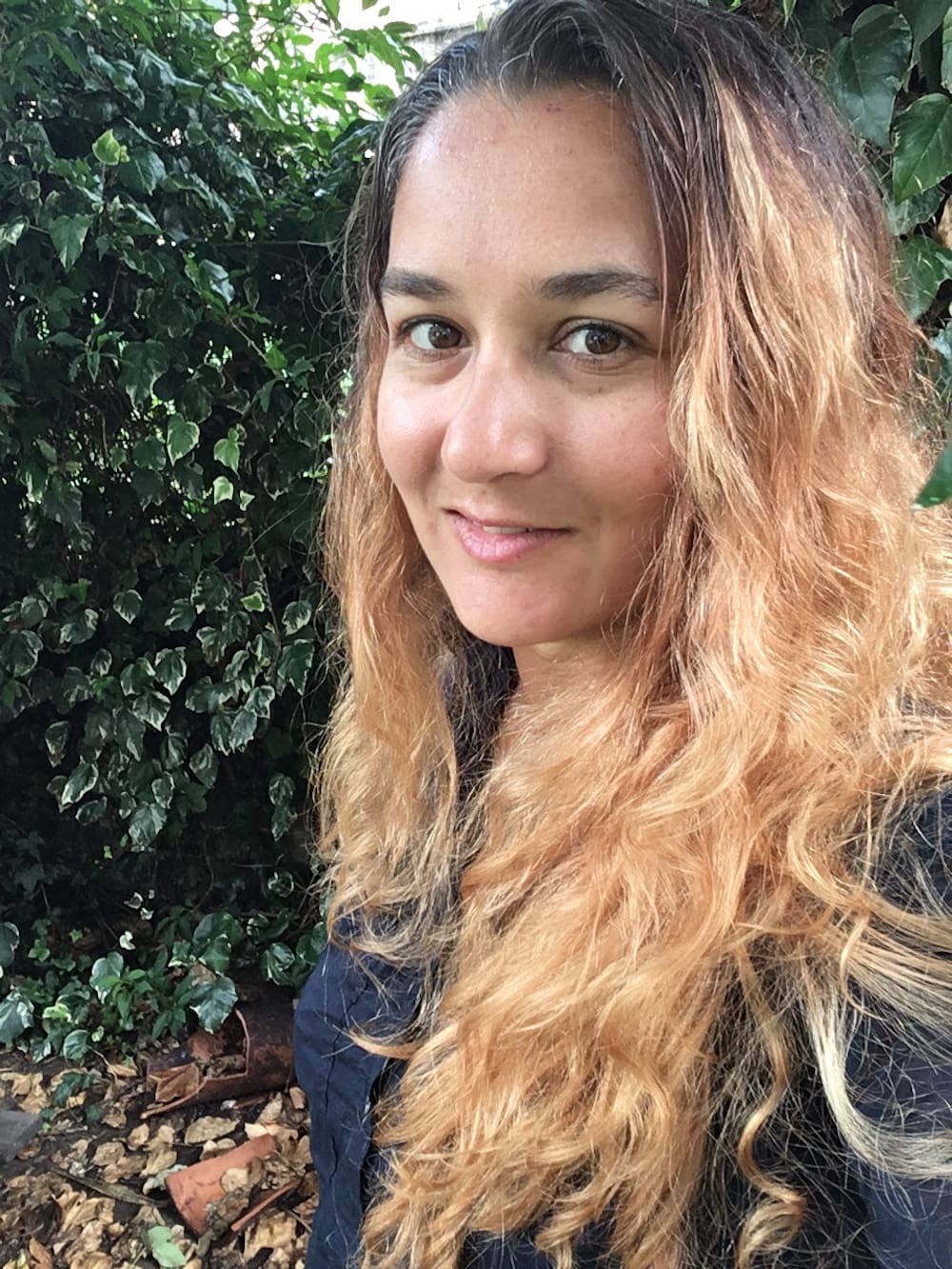
Ramnation founder - Talia Hussain
Founder: Talia Hussain
Label: Ramnation
Kind: Menswear
Hi Talia! How did your label Ramnation begin?
There wasn’t one particular light bulb moment. It grew out of a number of conversations I was having, trends I’d noticed, and gaps I could see. For example, I know a lot of guys who have professional jobs but don’t need to wear suits. There weren’t many interesting, wearable, smart but comfortable options for them. I grew up in a rural farming area and felt that our current way of living separates us from the natural world. I wanted to shorten the journey from farm to fashion and create a way for people to connect to, and celebrate, the countryside.
And why menswear?
Because men are less influenced by short- term trends and are more likely to spend more on an item that will last longer. I also saw there was space for items that were smart, casual and multifunctional – something you could wear to work, on a bike ride, or a countryside walk.
How important is sourcing?
The importance of sourcing and raw materials are the core of Ramnation. We’ve become very familiar with these ideas in the food and drink sector – no one would buy wine without a country label, yet most people have no idea what’s in their clothing, or where the material comes from.
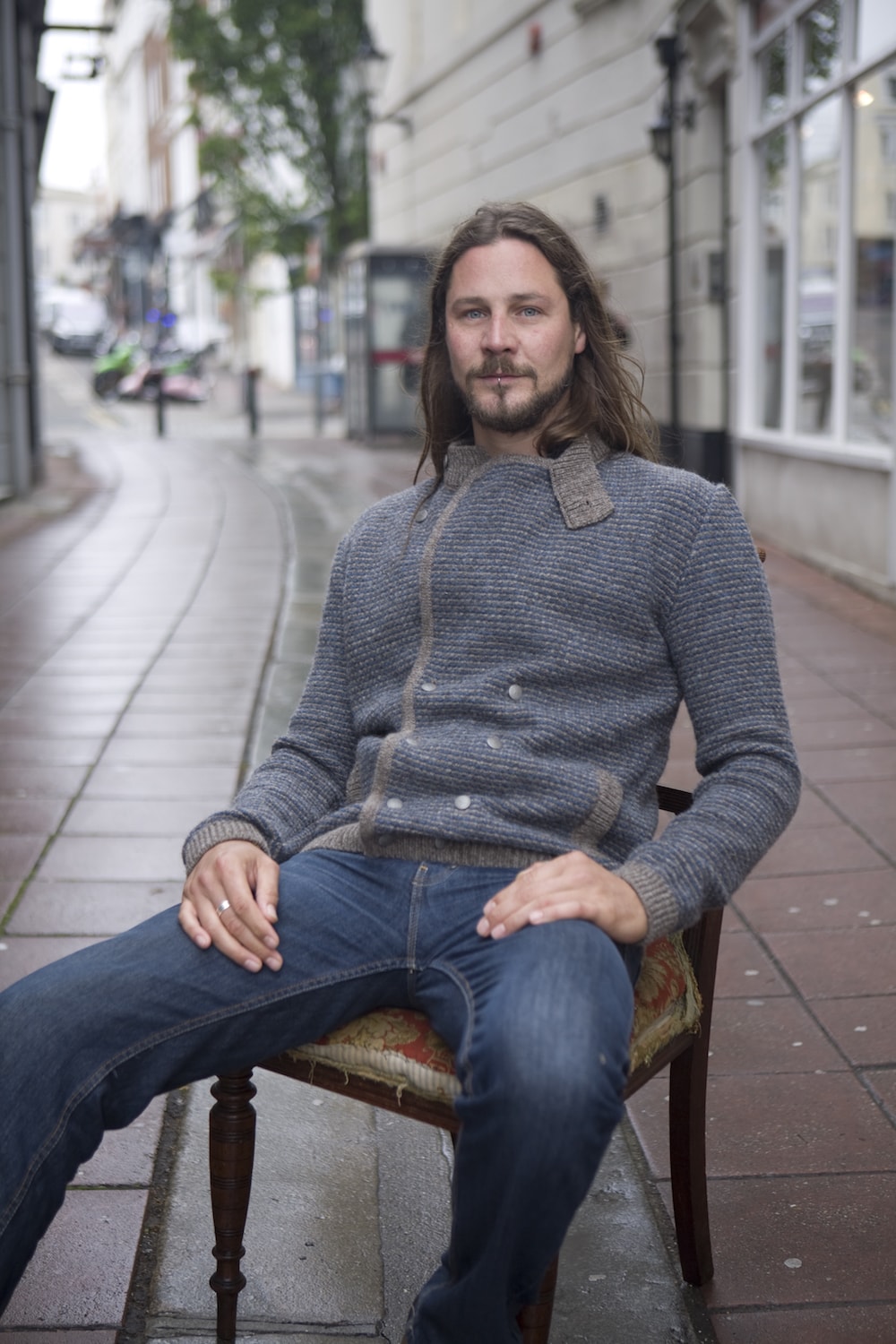
Ramnation
There are so many problems associated with fibres and fabrics, so I’m trying to make something which minimises these types of harmful impacts, by using a local, natural material and natural and organic dyes.
How are you different?
The biggest difference is that our garments are made from the fleeces of specific and rare breeds of sheep. The Manx Loaghtan is my favourite: it has a nutty brown fleece, and is native to the Isle of Man. Also, I don’t want to use synthetic fibres or chemical dyes, so I go to great lengths to eliminate them. I couldn’t find a polyester-free label, so I screen-printed my own on to silk with an organic ink.
What is it about the countryside that inspires you?
For me, the countryside and nature are my design touchstones. My mind is quiet. I feel free when I’m in contact with the natural world; that might be on a mountain or appreciating a garden flower. I hope that wearing my garments will help people feel a connection to the countryside and nature.
How can we heighten the awareness of ethical fashion?
People respond to stories, and the fashion industry has done a great job of promoting a fantasy world which has become entirely disconnected from reality. I think we need to find and tell new fashion stories that are substantial and real. What’s a more compelling story, to say “Kate Moss modelled it,” or “It belonged to my dad”? We need to connect our clothes to the things we value. That’s one of the ideas behind Ramnation – a true story about provenance, the British countryside and local production.
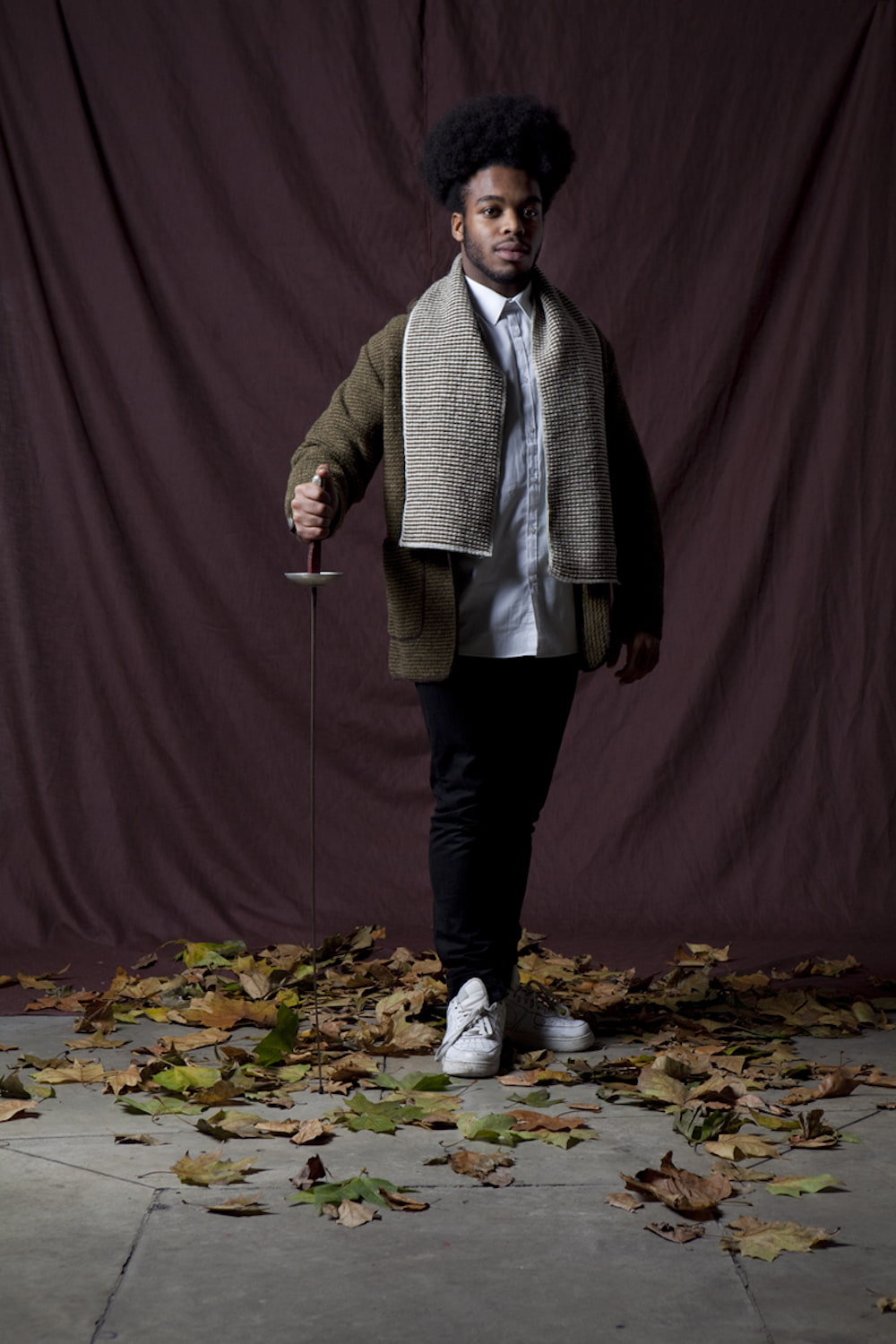
Ramnation
Most clothes are made cheaply in developing countries and then marked up for the West. Why is there not more transparency in the fashion industry?
The simple answer is that some people are profiting from this situation. Of course, it’s not simple. A factory owner may feel he needs to underpay his workers in order to keep costs low. He may feel he needs to overwork them to meet tight deadlines.
Is he responsible? Or is he trapped in a system which is exploiting him, too? I don’t think these problems have easy answers. I do think we all bear some responsibility for supporting change by buying better. Brands can exercise their procurement power, supporting suppliers with good employment and environmental practices. Consumers can support those brands by buying their products.
Find out more at ramnation.co.uk
